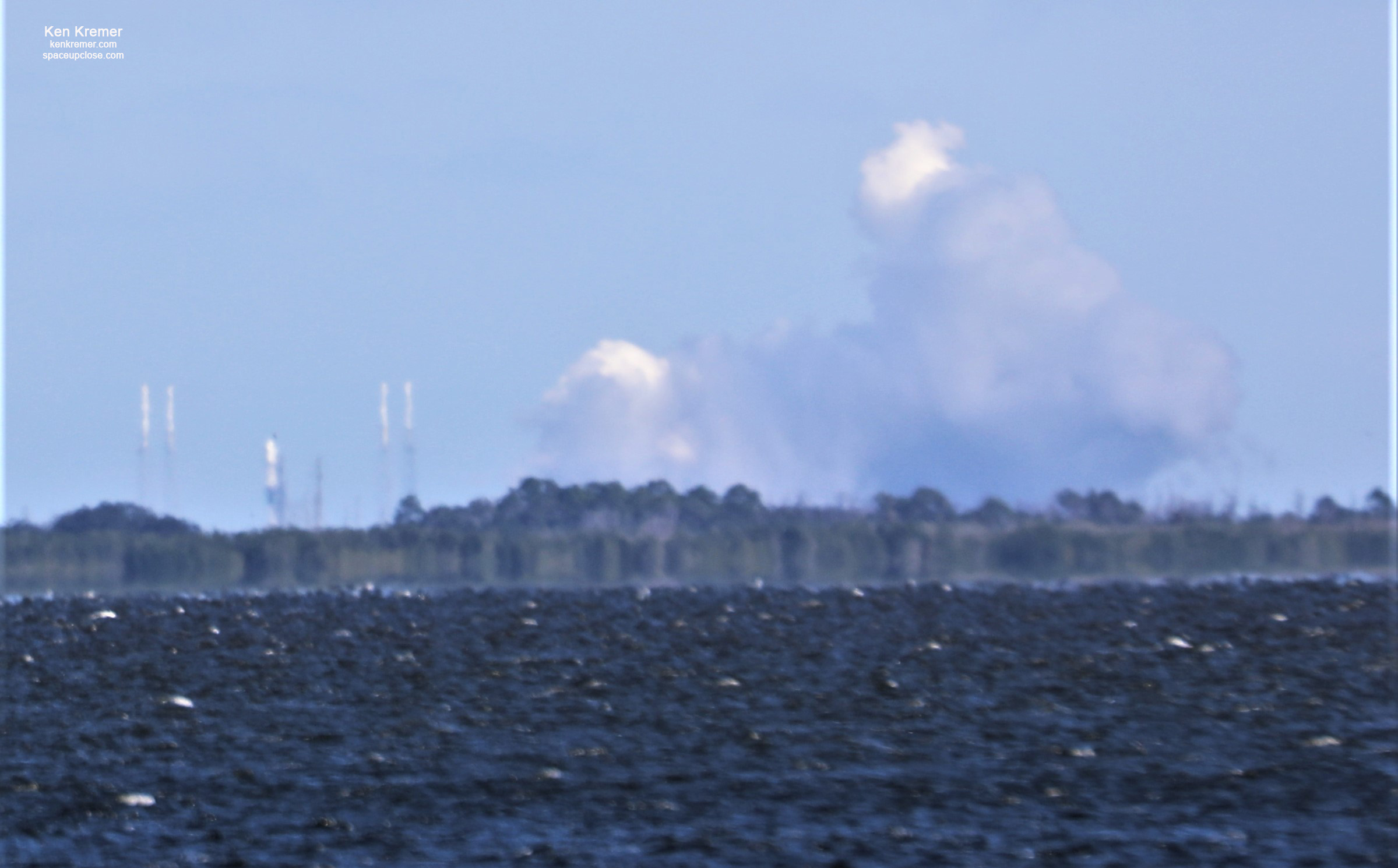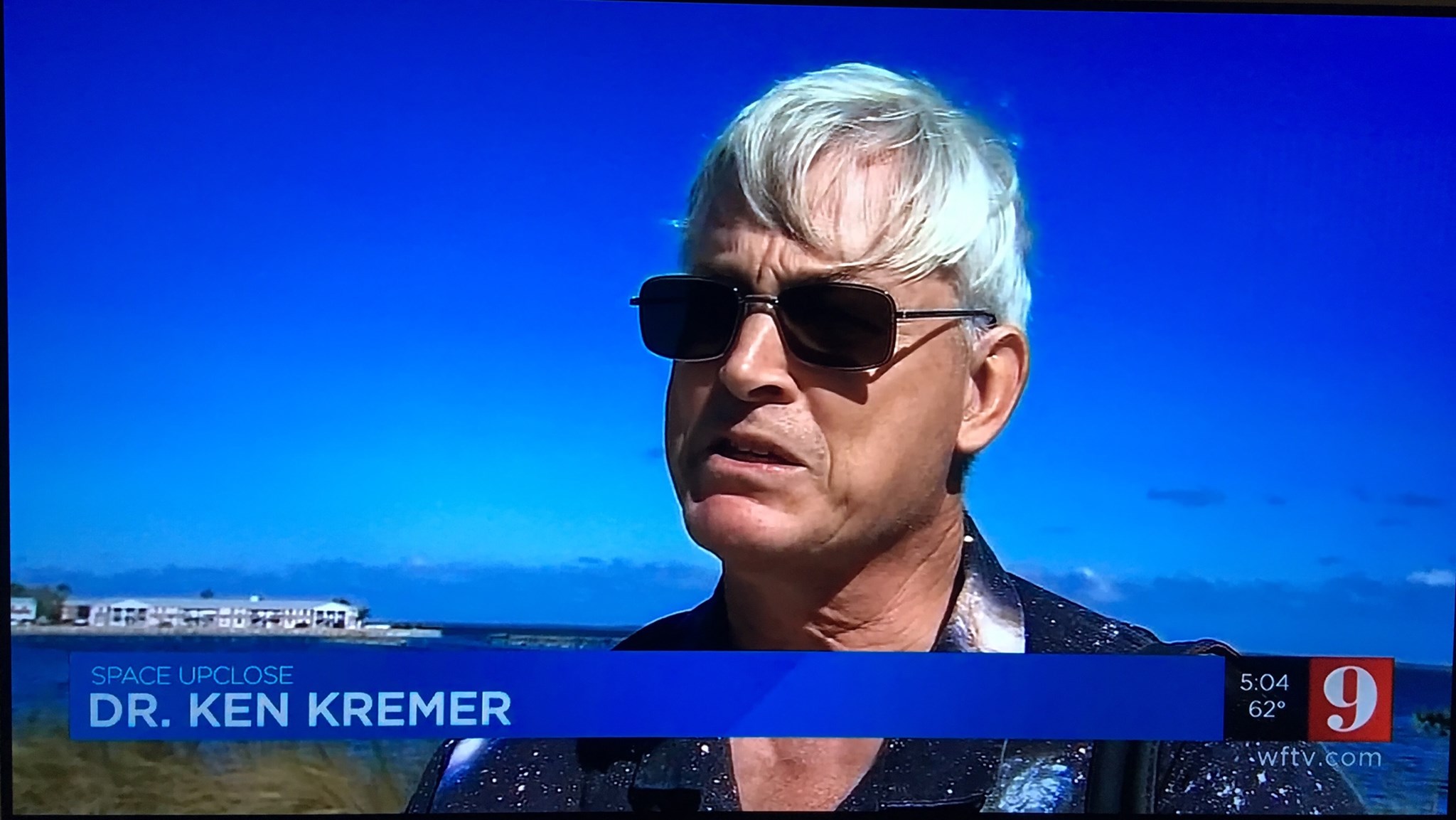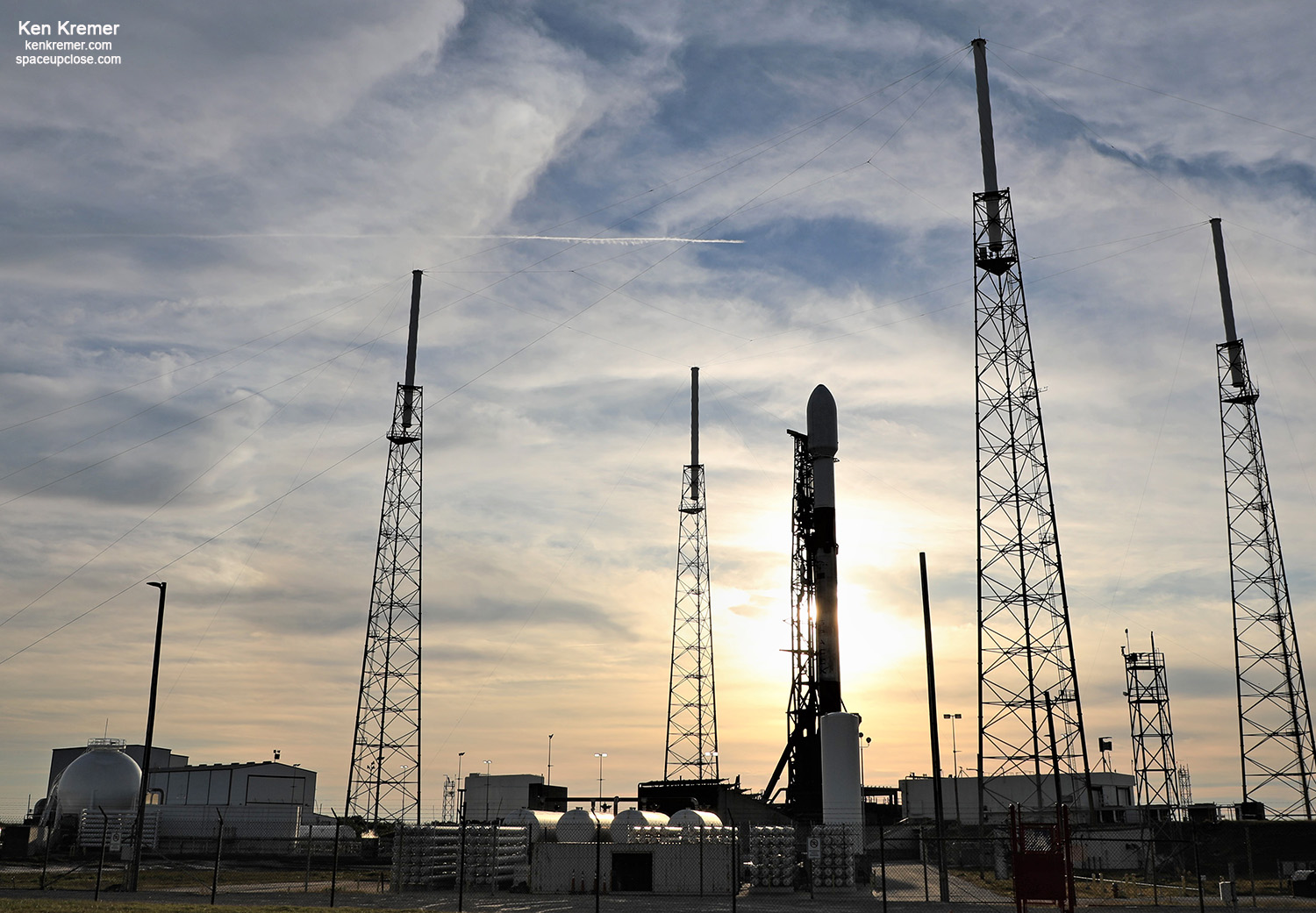
CAPE CANAVERAL AIR FORCE STATION, FL – SpaceX continues on a roll with their 3rd Falcon 9 launch in the month of January now set for liftoff Monday morning Jan. 27 with the next batch of 60 Starlink satellites enlarging their constellation of broadband internet satellites – but with a very iffy weather outlook along the Florida Space Coast.
The payload comprises the fourth batch of 60 SpaceX built and owned Starlink broadband satellites launching to LEO with an overall mass of about 7.7 tons.
Liftoff of the 4th Starlink mission is now targeted for 9:49 a.m. EST, 1449 GMT, Jan. 27 from Space Launch Complex-40 (SLC-40) on Cape Canaveral Air Force Station, FL – with an instantaneous window.
But the weather outlook is very uncertain with only a 50% GO prognosis and a forecast of very strong upper altitude winds reaching 135 knots which could well force a scrub of at least 24 hours.
Enjoy my gallery of Space UpClose photos of the recycled and rather sooty Falcon 9 poised erect to roar off seaside launch pad 40 taken at sunset today, Sunday, Jan 26, during our media remote camera set up.
Notably there was no Starlink logo stenciled on the side of the payload fairing- it was starkly bare atop a rather sooty recycled booster outfitted with grid fins and landing legs.
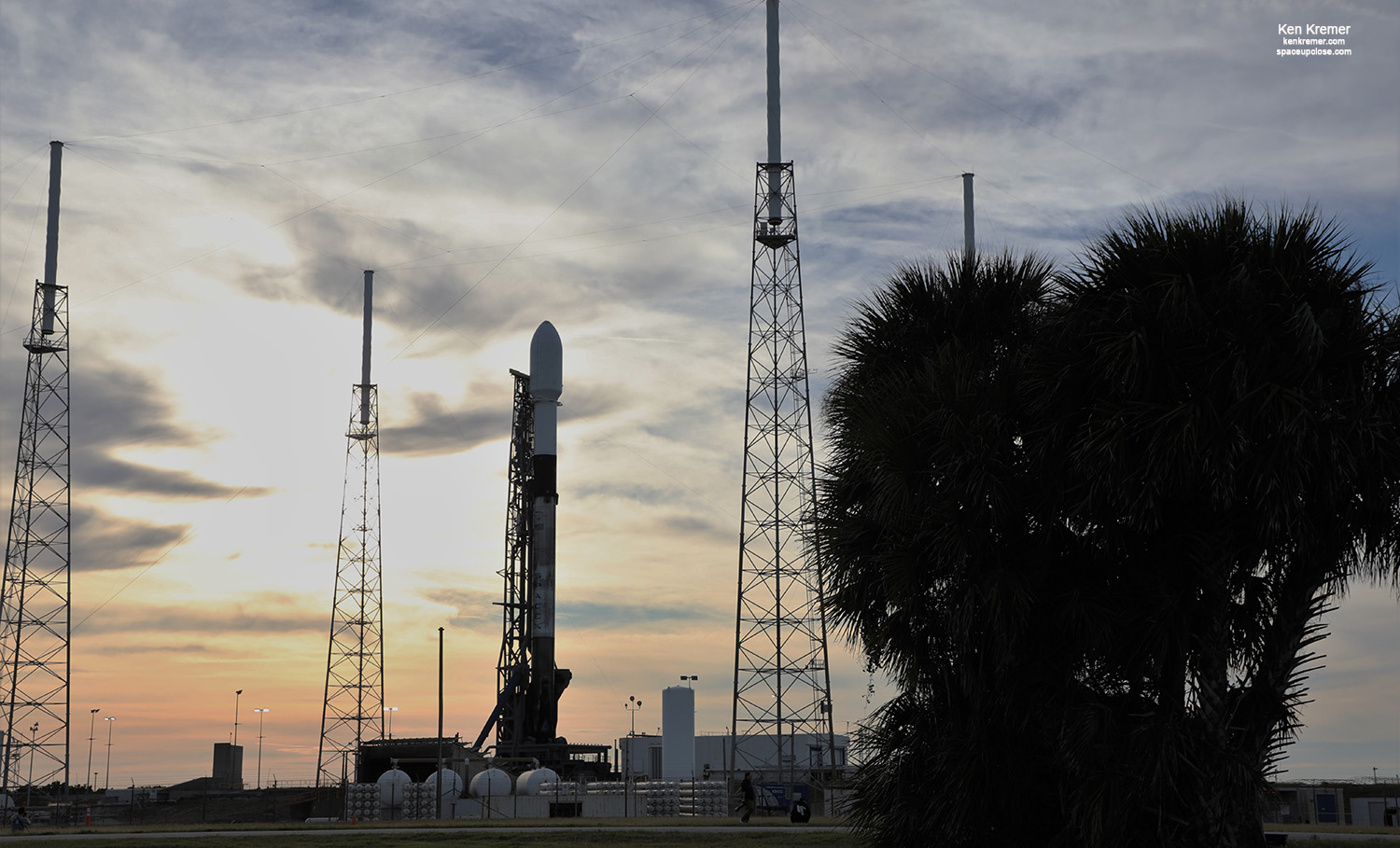
You can watch the launch live via SpaceX webcast:
Visit spacex.com/webcast
Watch SpaceX’s live launch webcast starting about 15 minutes before liftoff to learn more about the mission.
In case of any delays for weather or technical reasons a backup launch opportunity exists on Tuesday morning.
Liftoff time moves slightly earlier by about 21 minutes to 9:28 a.m. EST (1428 GMT) on Tuesday, January 28.
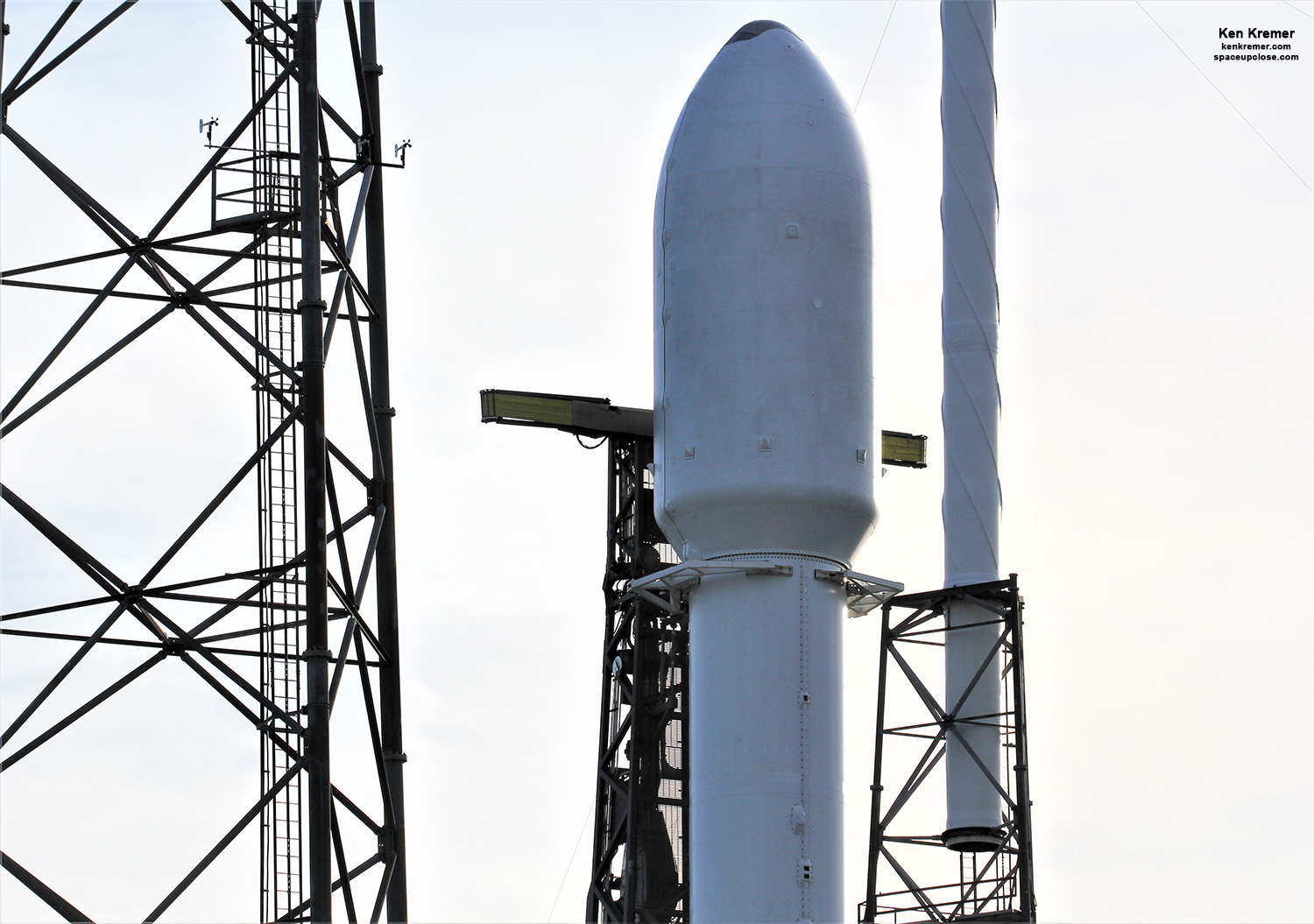
Teams are still basking in the glow of the super successful Crew Dragon In Flight Abort test on Sunday, Jan. 19 as they prepare for this weeks blastoff of their recycled Falcon 9 rocket for the next Starlink mission on Monday, Jan. 20 on Cape Canaveral.
The launch will be the third for this Falcon 9 after previously flying the SpaceX Crew Dragon on its first demonstration mission Demo-1 in March 2019 (see our earlier articles and photos) and the RADARSAT Constellation Mission in June 2019.
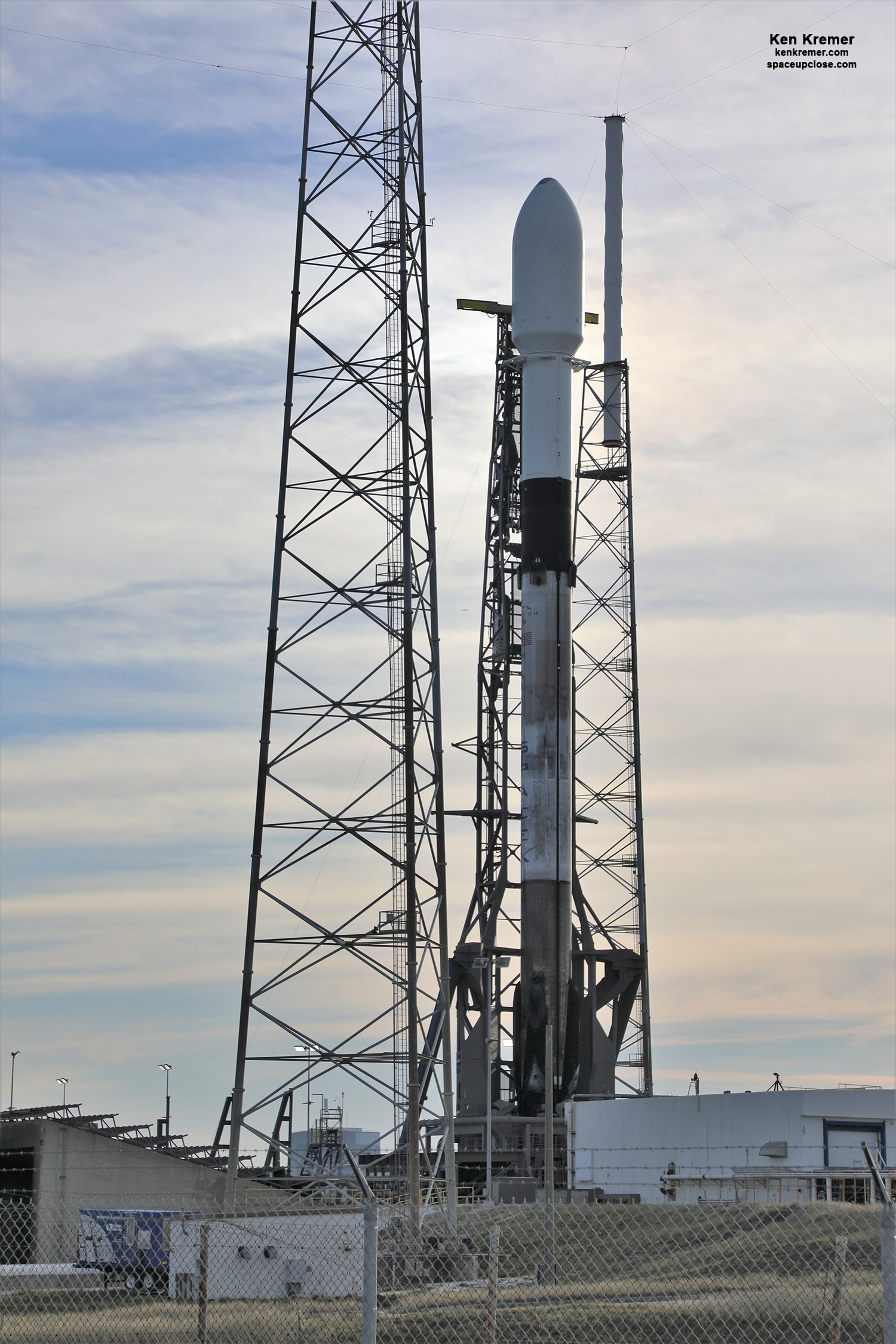
SpaceX will also attempt to recover the first stage and both payload fairings.
Following stage separation, SpaceX will target the booster to land on the “Of Course I Still Love You” droneship about 8 minutes after launch – which will be stationed about 400 miles (640 kilometers) northeast of Cape Canaveral in the Atlantic Ocean.
Approximately 45 minutes after liftoff, SpaceX’s two fairing recovery vessels, “GO Ms. Tree” and “GO Ms. Chief,” will attempt to recover the two fairing halves with their giant catchers mitt nets.
SpaceX CEO Elon Musk has made rocket recycling a top priority in order to slash launch costs.
Musk says that the fairings cost approximately $6 million or roughly 10% of the approximate cost of $60 million for a new Falcon 9 rocket.
The two stage Falcon 9 rocket stands 229 feet (70 meters) tall.
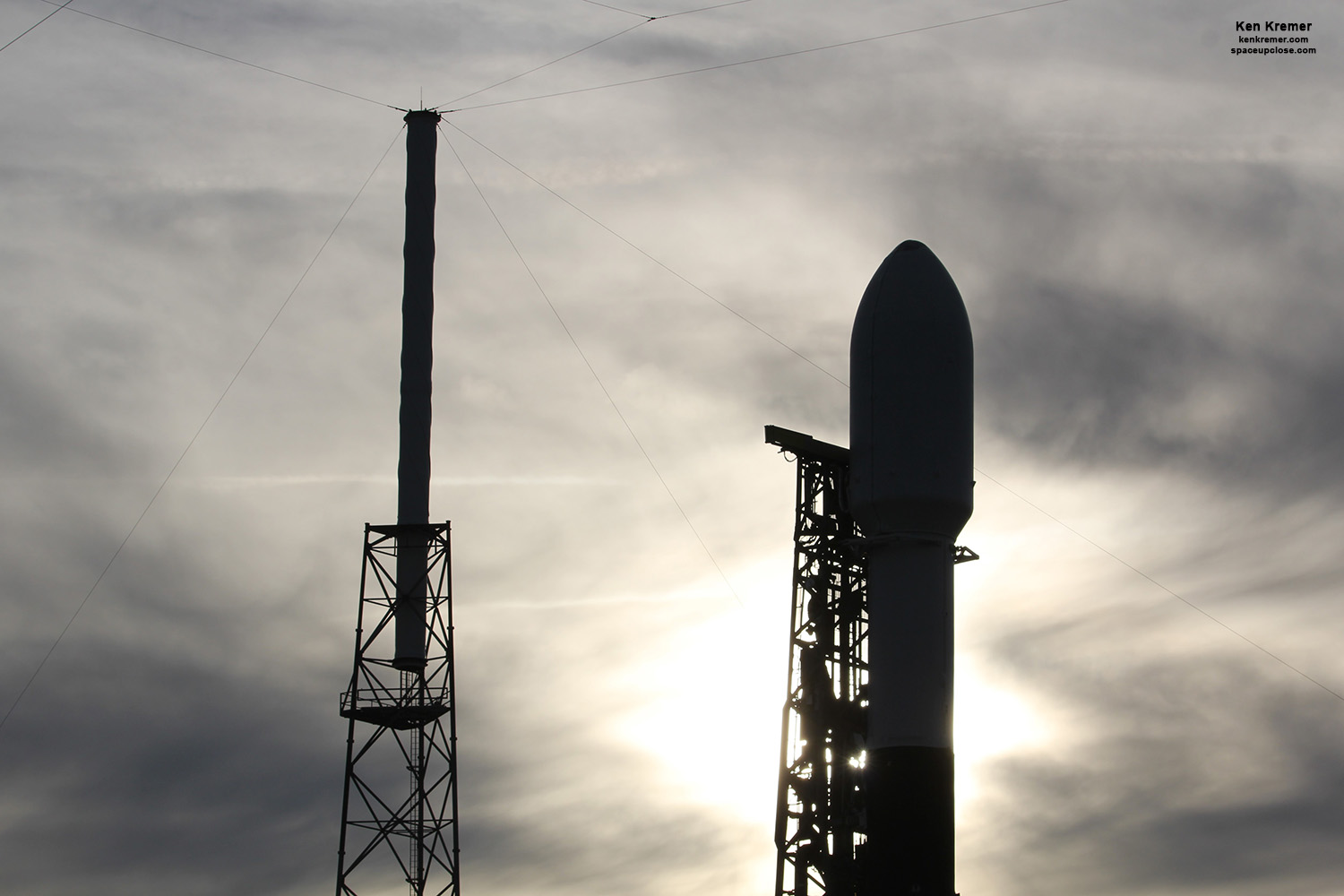
The weather outlook is not very promising.
Air Force meteorologists with the 45th Space Wing at Patrick Air Force Base predict only a 50% chance of GO conditions at launch time – but could change at any time.
The primary concerns are for: Thick Cloud Layer Rule, Disturbed Weather Rule.
Furthermore upper altitude winds have worsened to become more stronger and are forecast at 130 knots – which could force a scrub.
The goal of Starlink is to create a network that will help provide internet services to those who are not yet connected, and to provide reliable and affordable internet across the globe.
“Starlink is a next-generation satellite network capable of connecting the globe, especially reaching those who are not yet connected, with reliable and affordable broadband internet services,” says SpaceX.
“The Starlink satellites will deploy at an altitude of 290 km. Prior to orbit raise, SpaceX engineers will conduct data reviews to ensure all Starlink satellites are operating as intended. Once the checkouts are complete, the satellites will then use their onboard ion thrusters to move into their intended orbits and operational altitude of 550 km.”
The 260 kg satellites will be deployed over about an hour.
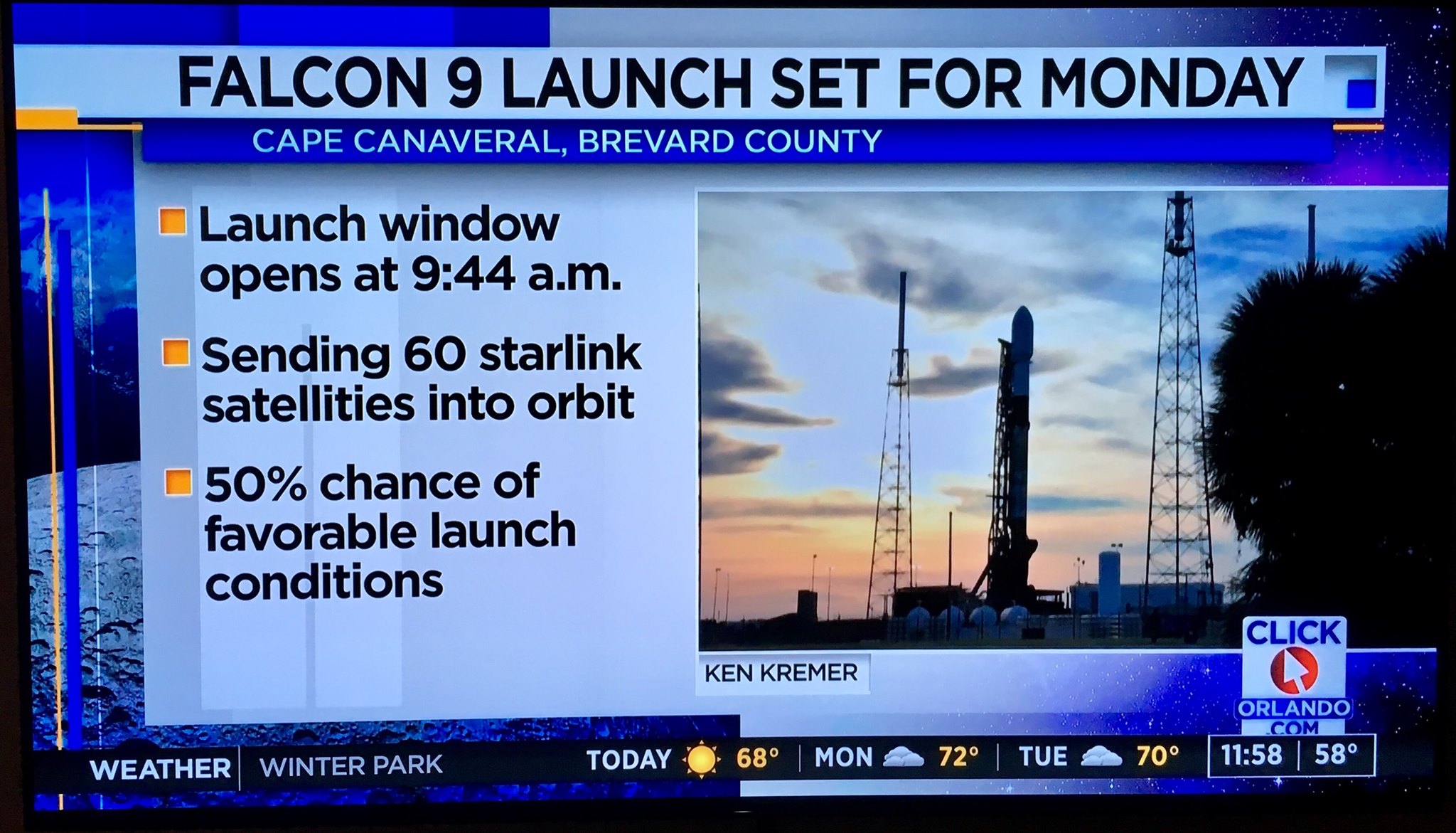
The 4rd Starlink mission is also significant in that it continues the opening of the new launch season as the 3rd US launch of this month of January 2020 and the new decade – and that will almost certainly include the first human launches from US soil in over 8 long years.
Furthermore SpaceX is also the owner of the largest fleet of Earth orbiting satellites – already numbering 180 satellites delivered to orbit – and 240 if all goes well Monday morning Jan. 27.
The prior Starlink 2 mission launched on Jan. 6. See our articles and photos.
The path to Starlink 3 launch was paved following a successful static fire test last week on Monday, Jan. 20 – as I witnessed last week from Titusville across the Indian River lagoon in Titusville, FL precisely at 2 p.m. EST – from about 12 miles away. See my photos and article.
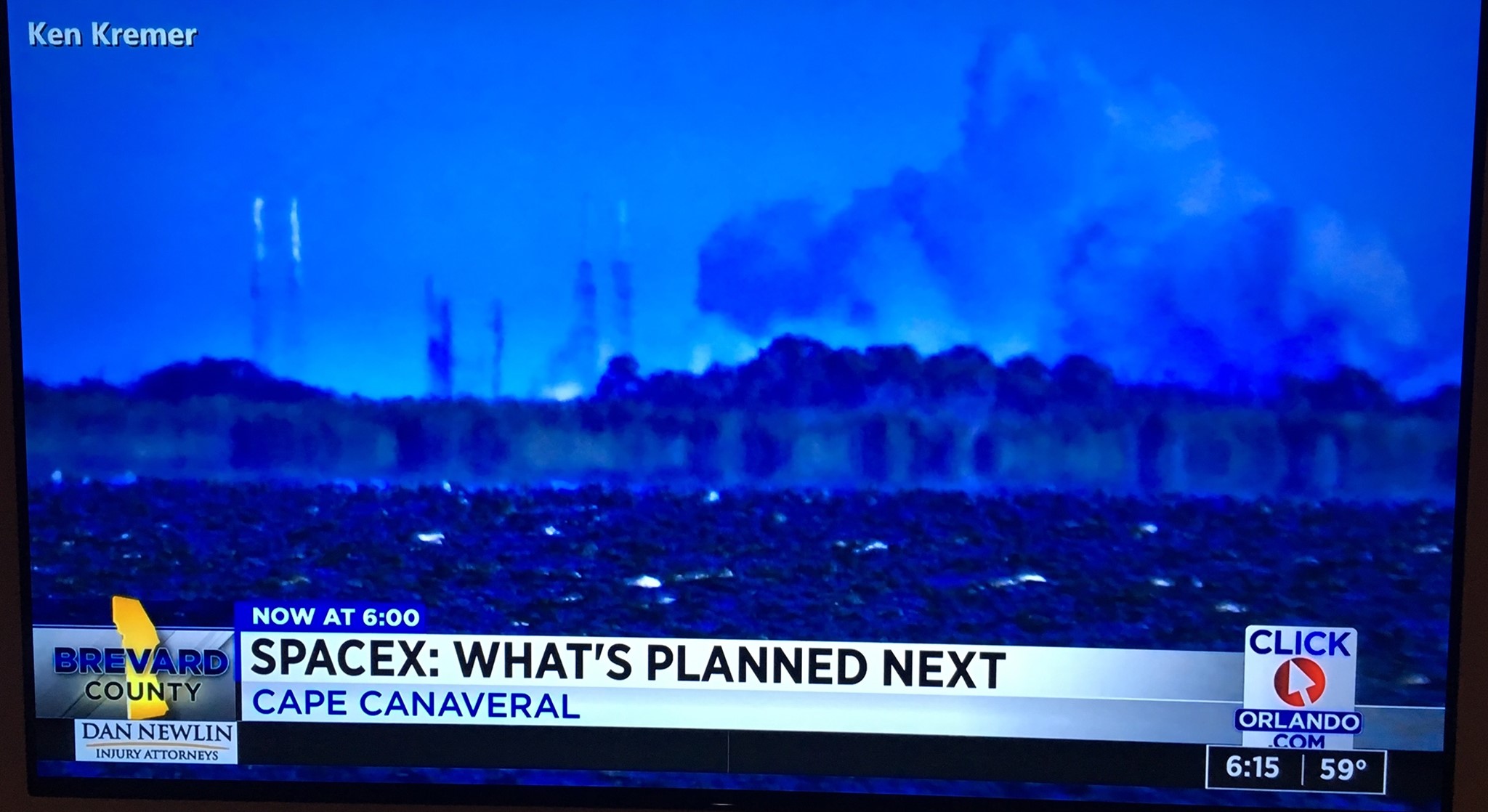
My Starlink and Crew Dragon launch commentary and photos were featured on WFTV ABC TV News Orlando and WKMG CBS TV News Orlando:
Watch Ken’s continuing reports onsite for live reporting of upcoming SpaceX and ULA launches including In-Flight Abort, Starlink and Solar Orbiter in Jan/Feb 2020 at the Kennedy Space Center and Cape Canaveral Air Force Station.
Stay tuned here for Ken’s continuing Earth and Planetary science and human spaceflight news: www.kenkremer.com –www.spaceupclose.com – twitter @ken_kremer – email: ken at kenkremer.com
Dr. Kremer is a research scientist and journalist based in the KSC area, active in outreach and interviewed regularly on TV and radio about space topics.
………….
Ken’s photos are for sale and he is available for lectures and outreach events
Ken’s upcoming outreach events:
Jan 26/27: 7 PM, Quality Inn Kennedy Space Center, Titusville, FL. “SpaceX In Flight Abort and Starlink launches Jan 19 & 24. ULA Solar Orbiter Feb 5.” Free. In hotel lobby. Photos for sale
